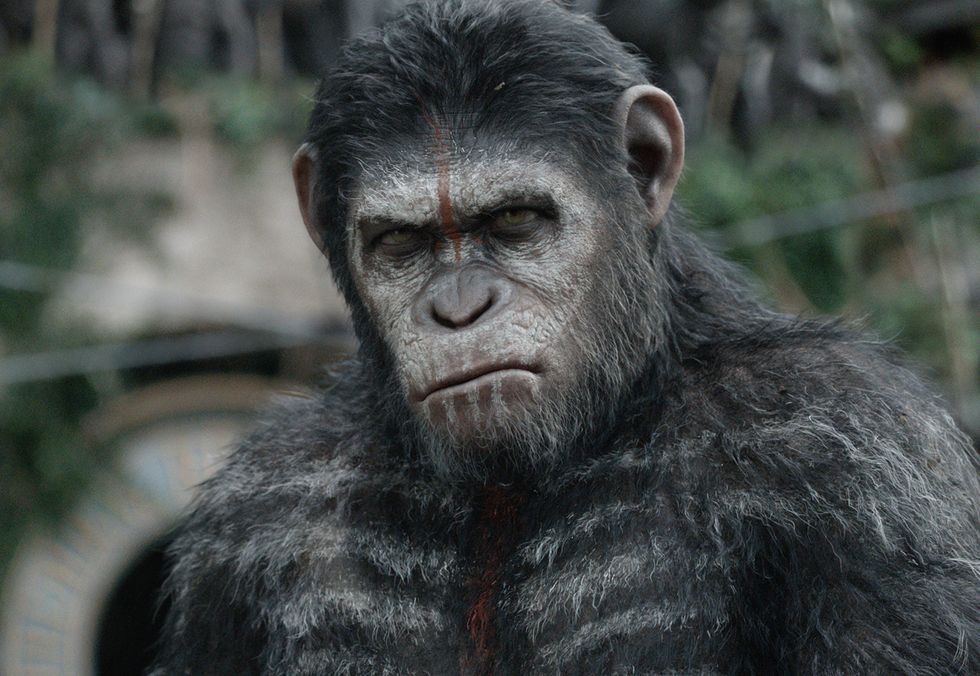As an avid appreciator and writer of both mediums, I hear a lot of arguments about whether books or movies are generally better.
When I was in high school, it seemed like my peers always preferred to simply watch the movie version of whatever required reading was in the curriculum. But was this because the movies were superior? Or was it simply because John Steinbeck's "The Grapes of Wrath" is a terrible book?
Ironically, when I attended college, the majority opinion seemed to have flipped. More of my friends who read books that became movies always preferred the book over the movie.
I am not here to debate which medium is more effective at telling stories, but I am going to attempt to showcase some of the instances where books stand superior. (I am going to focus on books since they generally do not gross nearly as much money as most blockbuster movies do).
So where do books have the edge?
1. The Higher Potential for Plot Twists
One of the best ingredients to a story is a good twist. For a while, I myself found little interest in a plot that did not have a great twist. They seemed to me to be the best part of any story.
Movies are no stranger to plot twists. "Memento" and "The Sixth Sense" are a testament to that. Unreliable narrators are the key to twists and exist in both mediums.
However, a book can make certain kinds of twists that are impossible on the screen. For example: Ben goes to work every day, hates his job, and his boss, Glen. We follow Ben's wife, Jen, who is growing distant from her husband and has an affair with a man named Zen. Later, we learn that Zen and Glen are the same person, and that Jen has been cheating on Ben with his boss.
This example is crude, but it gets the point across, that the aforementioned kind of plot twist would not work in a film. It relies on Jen being unreliable, not knowing Zen is Ben's boss, and when the reveal comes, the reader is just as surprised as the characters. If a movie tried to conduct the same type of twist, the characters would be surprised, but the audience would not be since they saw Glen and Zen in both contexts.
Since characters' faces are incredibly hard to describe (barring any major distinguishing features), it is easy to use this kind of twist in a book.
*Disclaimer: HBO's "Westworld" managed to pull off a similar kind of twist, which was impressive for a TV show.
2. You Can Consume a Story At Your Own Pace
Though you can pause a movie, and put it in slow motion, that type of control is not nearly the same as the kind of control a reader has over a page. Movies and TV have a rhythm, which is a crucial component of the art form. But a book's rhythm is entirely different for each reader, depending on their speed. Not even binge-watching can provide that.
So, if you are like me, and read like a snail, over-analyzing every sentence, then no fear. You can take as much time as you would like. Or if you are a speed-reader that consumes information far faster than a movie can deliver, then books, as well, will provide an advantage for you.
3. An Author Is Only Limited by Descriptive Ability
Whether a publisher deems it appropriate or not, an author always has the ability to create whatever kind of fictional world they can dream up and put to words. The only limit is the strength of a writer's descriptions. As a writer myself, I have even elected to turn one of my stories into a book simply because I did not have the production at hand required to bring my world to life.
This concept especially applies for big-budget special effects movies. While visual effects technology has come far in the past 50 years, its capabilities are limited. Even the most realistic of renderings like the characters of the rebooted "Planet of the Apes" franchise are easily recognizable as CGI.
Applying this concept, an author can also decide how much to describe, and how much to leave up to the reader's imagination. One example that comes to mind is Stephen King's "It," a much more terrifying book than a movie because King forces the reader to imagine many of the titular creature's forms as what terrifies the reader. Without spoiling too much, the end of "It" involves one of the protagonists travelling through multiple states of being, and King's descriptions are more ambiguous and abstract than anything. This leaves the reader plenty of room to imagine things for themselves.
Which brings me to my next point:
4. You Decide Who the Cast Is
A great movie with a great story can be ruined by terrible actors. Keanu Reeves proves that time and time again.
Delivery and voice are crucial to good movies, but with books, that component is removed and the onus is more on the writer to convey voice. A good book should "speak," and when it does, it leaves the reader with the opportunity to "hear" the voice however it suits them.
As strange as it sounds, I often attribute characteristics of people in my life onto characters I read about. It makes understanding and visualizing them easier for me. Just as well, I can assign any actor I would like to stand in for the characters (though this is harder to do if you see a screen adaptation before you read).
Maybe you decide you want Tom Hanks to be your stand-in for the whole cast. No problem. But Tom Hanks has range and could probably pull it off on film anyway.
5. Authors Have More Creative Freedom Than Filmmakers
So, admittedly, there is always limited artistic freedom for creators of any kind. Whatever publisher or studio you work with, you are going to get push-back as a result of "collaboration." That being said, novelists receive the least amount of hacking and slashing to their original works as opposed to movies.
It makes sense if you think about it. A lot of the things discussed earlier in the article were the limits of film like special effects and actors. Films are made by teams, huge teams in most cases, meaning that the amount of people who contribute in some way to a movie can be ten times the amount of people who would oversee a book project.
Books have editors, usually more than one. They have publishers and publicists who care about the marketability of a book. Beyond that, though, those involved with the publishing would be distributors and vendors who do not necessarily have creative input.
Films are far more complex. Though a director of a film is the authority, he/she must oversee the writers, producers, the editor, the composer, the props, the camera operators, etc. All of these participants add their own creativity to a project, even if some do less than others. A film's costume design is done with direction, but is still largely the product of the designer's mind, not the writer's.
Dealing with less collaboration allows the alterations to an author's ideas to be less drastic than of a screenwriter.
Afterword
This list is by no means exclusive, and does not mention the many ways that a movie might take advantage over telling a story with a novel. Hopefully, though, this list sheds light on why we should still consume some of our stories the old-fashioned way.

















